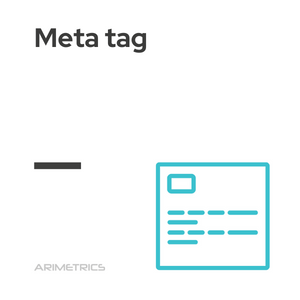
A meta tag is a special HTML tag that provides information about a Web page. Unlike regular HTML tags, meta tags do not affect how the page is displayed. Instead, they provide information, such as who created the page, how often it is updated, what the page is about, or the keywords that represent the content of the page.
Search engines use the information provided by metatags to build their indexes. These tags are analyzed along with other factors to determine the relevance and position of a page in search results. Therefore, the optimization of metatags is a crucial component of a website’s SEO (Search Engine Optimization), as it can significantly influence its visibility and ranking in search engines.
There are several types of metatags that are commonly used to improve the optimization of a website:
- Meta description: Provides a brief summary of the page content. Although it does not directly influence search ranking, a good description can increase CTR (click-through rate) from search results.
- Meta keywords: Although their use has declined due to changes in search engine algorithms, some platforms still use them to identify relevant topics.
- Meta robots: Tells search engines how to index the page, allowing options such as “index” or “noindex” to control page visibility.
Importance of metatag optimization
Meta tag optimization is essential to maximize the SEO effectiveness of a website:
- Relevance: Ensuring that metatags accurately reflect the content of the page helps search engines better understand the purpose of the page.
- Increased CTR: An attractive meta description can capture the attention of users and increase the likelihood that they will click on the link.
- Indexing control: Meta tags allow webmasters to control which pages should be indexed, which is useful to prevent duplicate or irrelevant content from affecting SEO.
When implementing metatags, it is important to avoid certain mistakes that can harm a website’s performance:
- Excessive use of keywords: Overloading meta tags with keywords is not only ineffective, but can be penalized by search engines.
- Generic descriptions: Using the same meta description for multiple pages can confuse search engines and dilute the relevance of the content.
- Ignoring updates: Failing to update meta tags when page content changes can lead to inaccurate descriptions and negatively affect SEO.
